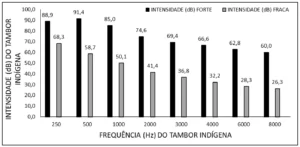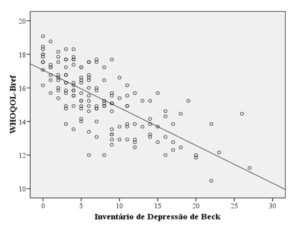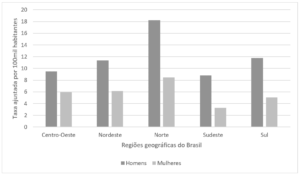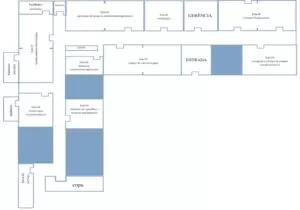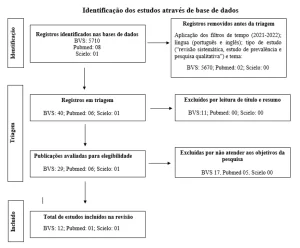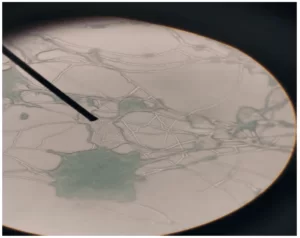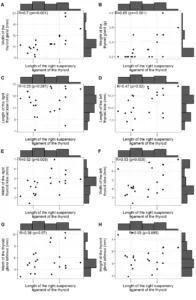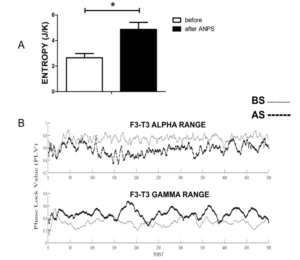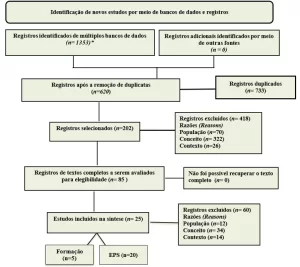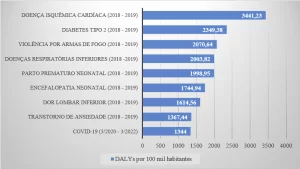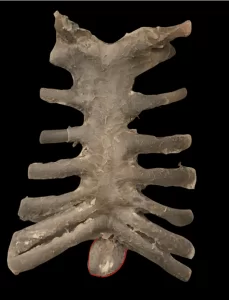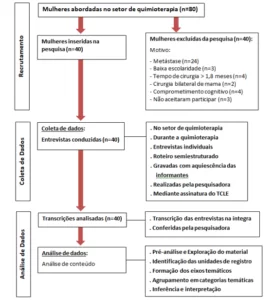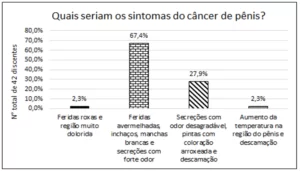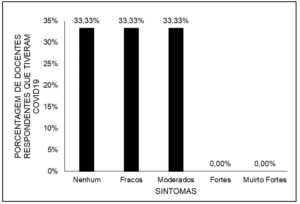REVIEW ARTICLE
SOUZA, Keulle Oliveira da [1], MOREIRA, Elisângela Claudia de Medeiros [2], DIAS, Claudio Alberto Gellis de Mattos [3], PASCOAL, Rosana Moraes [4], MELO, Arlen Maia de [5], NAZARÉ, Mailson Lima [6], FECURY, Amanda Alves [7], DENDASCK, Carla Viana [8], BAHIA, Mirleide Chaar [9], OLIVEIRA, Euzébio de [10]
SOUZA, Keulle Oliveira da. et al. Global health and health promotion processes: an integrative literature review. Revista Científica Multidisciplinar Núcleo do Conhecimento. Year. 07, Ed. 03, Vol. 04, pp. 81-90. March 2022. ISSN: 2448-0959, Access link: https://www.nucleodoconhecimento.com.br/health/global-health, DOI: 10.32749/nucleodoconhecimento.com.br/health/global-health
ABSTRACT
Global Health is a polysemic expression, but strongly identified as a response to relatively new Health problems and with accelerated growth in the number of cases, which affect the population of both rich and poor countries, such as the emergence of diseases that can be avoided by through exercise practices or physical or sports activities. These diseases can be: Obesity, Diabetes, Cardiopathies, Kidney dysfunctions, Metabolic syndromes, among others. These diseases can also be avoided through food control, social programs such as the Family Health Program, vaccination campaigns, control of health and humanitarian crises. Another factor that has contributed to the imbalance of Global Health is the unrestricted use of natural resources, the growing and unrestrained exploitation of deforestation in the Amazon rainforest, among others. In this sense, this article aims to show in the current literature how the Global Health field is being configured, linked to contemporary globalization processes. Methodologically, the study took place through an integrative view of the literature, with emphasis on scientific productions published from the 2000s onwards. The main results of the article show that Global Health is a field that involves diplomatic relations between countries, role remodeling of agencies considered hegemonic in the 20th century, such as the World Health Organization (WHO), horizontal proximity between countries in the formulation of health policies, participation of actors from civil society and the second sector, recognition of cultural, political and social diversity , and the need to understand the environmental determinants of health. On the other hand, it shows its limits of practical action in contexts marked by neoliberal principles, of minimal state intervention, since investments in Global Health depend on the performance of strong national health systems.
Keywords: Health, Globalization, Global Health.
1. INTRODUCTION
The first decades of the 21st century point to several achievements and challenges of a scientific, theoretical and practical nature in the field of formulating health policies in times of intense globalization processes. We identified advances such as the increase in life expectancy in the last 50 years (McMICHAEL, BEAGLEHOLE, 200). On the other hand, today’s global society is also marked by high levels of consumption and environmental pollution, which affect the health of world populations.
According to information released by the Pan American Health Organization (PAHO, 2019) there are a series of health challenges to be faced worldwide, such as outbreaks of diseases that can be prevented by vaccination, health and humanitarian crises, high rates of obesity, impacts arising from processes of environmental pollution and changes in the climate, among others.
Global Health is a polysemic expression, but strongly identified as a response to relatively new health problems (NIGRO; PEREZ, 2014). Problems that affect developed, developing and underdeveloped countries. The field has a direct relationship with globalization processes of the new world order, such as: high flows of economic capital circulation, technical-scientific advances, large-scale displacement of people (forced or not), resistance to drugs such as antibiotics, use unrestricted use of natural resources (GRISOTTI, 2016; CUETO, 2015; FORTES; RIBEIRO, 2014). Thus, apparently isolated health problems reflect global relations and ties and power games between countries.
Based on these aspects, the objective of this article is to show in the current literature the main references on Global Health, linked to globalization processes, in the context of transition from the 20th to the 21st century.
2. METHODOLOGY
The study was carried out through an integrative literature review, as it is a method that allows the “inclusion of experimental and non-experimental studies, for a complete understanding of the analyzed phenomenon” (SOUZA; SILVA and CARVALHO, 2010, p. 103), through the following guiding question: how is scientific production on Global Health shaping up at the beginning of this century?
Research was carried out in databases such as Scielo, Google Scholar, the journal portal of the Oswaldo Cruz Foundation (Fiocruz). Authors such as Cueto (2015), Fortes and Ribeiro (2014), Nigro and Perez (2014), Ventura (2015) stood out. Inclusion criteria prioritized scientific productions published from the 2000s in Portuguese, by authors who have consistent research in the field of Global Health, who were most cited. Exclusion criteria: theses and dissertations. The descriptors used were: Global Health, Globalization and Health, Global Health and Globalization, and Diplomacy and Health. A notable Brazilian publication was identified between the years 2013 and 2015.
Regarding sociological studies on globalization, studies by Sassen (2010), Beck (1998), Giddens (2010) and Jameson (2001) were consulted, classic studies on the phenomena of globalization in the present time. Dialogue between various areas of knowledge was chosen, considering the complexity of current phenomena and demands in Global Health, in which disciplinary attempts become insufficient to understand them
3. RESULTS AND DISCUSSION
The classic vision that saw the phenomenon of globalization from an extremely positive perspective did not materialize. For Giddens (1991), globalization is a phenomenon that presents at least two sides, the first brings an avalanche of development, opportunities and scientific discoveries, the other is traced with the dark side of modernity (ALEXANDRE, 2000) result of several factors, among them: a disorderly expansion of the productive forces.
The current rapid transformations portray debates and controversies around a project of society based strongly on the discourse of modernity, which at its root assumed that reason and scientific advances would reach humanity in a full and equal way. However, constant transformations, innovations and discoveries also reveal risks and problems that may occur due to the lack of control that expansion can cause (BECK, 1998).
For Sassen (2010, p. 15) “the global is usually conceptualized as superior or neutralizing the place”. Beyond this vision, globalization involves economic, social, political, cultural and technological processes (JAMESON, 2001) that intertwine practices of International and National States, and local experiences.
For Kickbusch and Berger (2010, p. 23) “the global health society demands a radical change of mentality and a reorganization of the way we administer health”. These changes can be observed in the way agencies and institutions such as the World Health Organization (WHO), the World Bank, universities and a variety of actors who are willing to discuss health policies and actions together (VENTURA, 2015) . It must be considered, for the purposes of analyzes in Global Health, that the globalization processes go beyond the homogenization or common interconnection between territories and practices (SASSEN, 2010).
Thus, diplomatic relations between countries in the field of Global Health are shaped by the proximity of disciplines in the areas of Public Health, Economics, International Relations, Social Sciences, among others. In an attempt to overcome purely technical views in order to understand social and environmental determinants of health today (KICKBUSCH; BERGER, 2010; NIGRO ;PEREZ, 2014).
There is no uncontested or precise definition for the field of Global Health. Cueto (2015) proposes historical analysis as a basis for understanding current health dilemmas. For him, the term Global Health became broader than the expression International Health, used at the end of the 19th century and strongly disseminated in the 20th century by the Rockefeller Foundation (United States). By International Health, they understood agreements between governments, the creation of disciplines at the university level, the formulation of programs linked to health issues in poor countries, promoted by welfare actions in rich countries (FORTES; RIBEIRO, 2014). Meanwhile, Global Health covers Health issues at more horizontal levels, both in the relationship between countries and in the participation of different actors.
It is observed in the analyzes Cueto (2015) and Fortes and Ribeiro (2014) at least two trends when the subject is Global Health. One that seeks support in health proposals with ethical approaches, promoters of equity and social justice. The other is more instrumentalist, based on the need to invest in health tools, aiming at health security to meet the commercial and economic demands of each country. For Cueto (2015) the first has a strong appeal to face global injustices and social inequalities, while the second has an action direction for control through the use of new technologies.
Grisotti (2016) alerts to the fact of thinking about Global Health beyond an academic-scientific fad and purely semantic meanings, since this field is permeated by issues of Governance in Health and the interests of several countries. For her, thinking about Global Health also means understanding the repositioning of many agencies like the WHO, and discussing the relationship between science, power and norms. She clarifies that the scientific knowledge disseminated about infectious diseases also showed the “interdependence between human and animal health [..]” (GRISOTTI, 2016, p. 379).
The discussions presented here show the challenge to be faced in the field of discussions on Global Health. Fortes and Ribeiro (2014) make their reservations regarding the subject, as issues of the 21st century are reflections of accumulated challenges and contemporary issues. In the authors’ conception, there are fundamental axes that cannot escape any analysis in Global Health, which distance it from traditional practices of International Health, namely: the approximation with regional and local realities, the recognition of socioeconomic, cultural and political differences between nations and the internal diversity of each country.
In terms of Global Health, there is talk of joint action by a plurality of actors, agencies and institutions, but the exacerbated economic expansion shows that the effects of globalization do not reach countries equally and sometimes encourages disparities between rich countries and poor, as highlighted by McMichael and Beaglehole (2003).
This complex relationship and disparity between countries is noted by Ventura (2015) in relation to the health of migrants, she cites the timid participation of less than 50 countries in the United Nations Convention that deals with the right of migrant workers. The author explains that developed countries tend to create restrictions on migration policies, while developing countries, such as those that form the so-called BRICS (Brazil, Russia, India, China and South Africa) are more flexible. Without deeply discussing the effects of this relationship, as it is not the objective of this article, the fact is that irregular displacements leave populations vulnerable and subject to precarious working conditions, thus increasing risks and health problems.
It is worth mentioning that the discussion on Global Health, in its various ramifications, depends on a strong engagement of national Health systems, and local populations should not be made invisible. In fact, a relevant contribution to the concept of Health lies in the anthropological approach to the term, which reflects a series of constraints on the lives of populations, since fundamental aspects related to the way of life, customs, even body care of a given population can be decisive for a broader analysis in health.
In a scenario of rapid transformations, the continental approximation provided by globalization creates bridges for health discussions, for the establishment of tools capable of building equitable health proposals. However, in a context marked by profound economic and social inequalities, based on precepts of neoliberalism, they make it difficult to implement these proposals (NETO; DENDASCK; OLIVEIRA, 2016).
4. FINAL CONSIDERATIONS
In the analyzed productions, it was found that Global Health can be treated as a discipline, as a tool, as an instrument, as a political arena for discussion in health governance, among others. In all biases, the importance of the debate around the environmental and social determinants of health is noted.
The way in which discussions on Global Health present themselves on the threshold of the 21st century represent the state of a convulsed world. Because it is a field under construction, it is still imprecise, but highly necessary.
In this context, Global Health demands multidisciplinary efforts that face merely positivist views in the field of Health, and expand the relationship between health professionals, professionals from other areas and assisted populations, proposing a joint, but autonomous relationship between them, as the subjects are in direct relationship with complex processes, which involve endogenous and exogenous issues.
REFERENCES
ALEXANDRE, Faria Agripa. A dinâmica da Sociedade de Risco segundo Anthony Giddens e Ulrich Beck. Revista Geosul. Florianópolis, SC, v. 15, n. 30, p .150-167, dez. 2000.
BECK, Ulrich. La Sociedade del riesgo: hacia uma nueva modernidade. Barcelona: Paidós. 1998.
CUETO, Marcos. Saúde Global: uma breve história. Rio de Janeiro: FioCruz. 2015.
GIDDENS, Anthony. As consequências da modernidade. São Paulo: UNESP. 1991
FORTES, Antônio de Carvalho; RIBEIRO, Helena. Saúde Global em tempos de Globalização. Revista Saúde e Sociedade. São Paulo, SP, v 23, n 2, p 366-375. 2014.
GRISOTTI, Márcia. Governança em Saúde Global no contexto das doenças infecciosas emergentes. Revista Civitas. Porto Alegre, RS, v 16, n 3, p. 377-398. Set. 2016.
JAMESON, Fredric. A cultura do dinheiro: ensaios sobre a globalização. 2. ed. Trad.: Maria Elisa Cevasco e Marcos César de Paula Soares. Rio de Janeiro: Vozes, 2001.
KICKBUSCH, Ilona; BERGER, Chantal. Diplomacia da Saúde Global. RECIIS. Rio de Janeiro, RJ, v 4, n 1, p 19-24, Mar. 2010.
McMICHAEL, A,J; BEAGLEHOLE, R. The global context for public health. THE LANCET. V 356, p 495-499, Agosto, 2000.
NETO, Daniel Carlos; DENDASCK, Carla; OLIVEIRA, Euzébio. A evolução histórica da saúde pública. Revista Científica Multidisciplinar Núcleo do Conhecimento. São Paulo, SP, v 1, ano 1, p. 52-67, Mar. 2016.
NIGRO, Daniele Sacardo; PEREZ, Fernanda Aguilar. Saúde Global: um campo em construção. In Saúde Global. FORTES e RIBEIRO (Orgs). Manole. 2014.
ORGANIZAÇÃO PAN-AMERICANA DA SAÚDE, OPAS. Dez ameaças que a OMS combaterá em 2010. Disponível em: Acesso em: 3 de janeiro de 2020.
SASSEN, Saskia. Sociologia da Globalização. Artmed: Porto Alegre, 2010
SOUZA, Marcela Tavares; SILVA, Michelly Dias; CARVALHO, Rachel. Revisão Integrativa: o que é e como fazer. Revista Einstein. São Paulo, SP vol.8 no.1 São Paulo, SP Jan/Mar. 2010
VENTURA, Deisy. Mobilidade humana e Saúde Global. Revista USP. São Paulo, SP v 107, p 55-64, dez. 2015.
[1] Master in Anthropogenic Studies in the Amazon – (PPGEAA/UFPA) and Researcher – Grupo de Pesquisa em Saúde, Sociedade e Ambiente (GPSSA/UFPA).
[2] Psychologist, PhD in Tropical Diseases, Professor at the Universidade do Estado do Pará (UEPA).
[3] PhD in Theory and Research of Behavior. Lecturer and researcher at the Instituto Federal do Amapá – IFAP.
[4] Master’s student in Anthropic Studies in the Amazon – PPGEAA/UFPA.
[5] Master in Anthropic Studies in the Amazon – PPGEAA/UFPA.
[6] Master in Anthropic Studies in the Amazon – PPGEAA/UFPA.
[7] PhD in Tropical Diseases. Lecturer and researcher at the Universidade Federal do Amapá, AP. Collaborating Researcher at the Núcleo de Medicina Tropical da UFPA (NMT-UFPA).
[8] PhD in Psychology and Clinical Psychoanalysis. Ongoing PhD in Communication and Semiotics at the Pontifícia Universidade Católica de São Paulo (PUC/SP). Master’s Degree in Religious Sciences from Universidade Presbiteriana Mackenzie. Master in Clinical Psychoanalysis. Degree in Biological Sciences. Degree in Theology. He has been working with Scientific Methodology (Research Method) for more than 15 years in the Scientific Production Guidance of Master’s and Doctoral Students. Specialist in Market Research and Health Research. ORCID: 0000-0003-2952-4337.
[9] PhD in Science: Socio-environmental Development. Lecturer and researcher at the Núcleo de Altos Estudos Amazônicos da Universidade Federal do Pará – NAEA/UFPA.
[10] PhD in Medicine/Tropical Diseases. Lecturer and researcher at the Universidade Federal do Pará – UFPA. Collaborating Researcher at the Núcleo de Medicina Tropical – NMT/UFPA, Belém (PA), Brazil.
Sent: May, 2022.
Approved: May, 2022.

